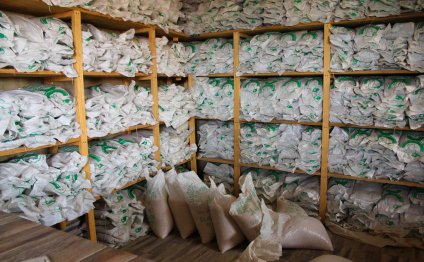
West African Agricultural
Feed the Future West Africa is making core investments in five key areas:
1. Increasing Regional Trade in Staple Foods
- Direct market facilitation
- Market information systems development
- Institutional capacity development
2. Increasing Capacity of Regional Agriculture Sector Actors
- Institutional support and capacity building
- Coordination and information system development
- Nutritional and vulnerability assessments and reporting
3. Increasing Use of Climate-Smart Agriculture Practices
- Climate-smart technology development and dissemination
- Development and dissemination of new information tools
- Training in new practices
4. Increasing Regional Availability of Improved Agricultural Inputs for Selected Crops
- Seed and fertilizer supply chain development
- Alliance building and trade association strengthening
- Policy reform
Highlights
Economic Community of West African States (ECOWAS) Regional Agricultural Transformation. Feed the Future is a primary partner with ECOWAS, which serves as the lead for the New Partnership for Africa’s Development/Comprehensive Africa Agriculture Development Programme (CAADP) process. ECOWAS is implementing the Regional Agricultural Policy for West Africa; its three regional priorities or "Mobilizing Programs" are:
- Promoting strategic products for food sovereignty
- Promoting a policy environment conducive to regional agricultural development
- Reducing food insecurity and promoting sustainable access to food
Corridors and Border Posts. Corridors are important to the movement of maize, livestock, and other key value chains in the region. Effective work on corridors entails a focus on one-stop border posts, which requires expenditures to consolidate border posts into single facilities and streamline customs and related processes. A tentative list of corridors to focus on include:
- Ouagadougou (Burkina Faso) - Bamako (Mali) - Dakar (Senegal)
- Niamey (Niger) - Ouagadougou (Burkina Faso) - Accra/Tema (Ghana)
- Kano (Nigeria) – Niamey (Niger)
Maize as Commodity for Regional Trade Facilitation. Feed the Future focuses on maize as it is critical for food security and also used in industry and animal food. It is recognized that variable rainfall patterns drive production levels because of rain-fed agriculture creating inconsistencies in supply. Improved intra-regional trade could move maize from surplus areas to deficit zones within the region. Varying growing calendars by country also creates opportunities for regional trade.
Livestock as Commodity for Regional Trade Facilitation. Feed the Future focuses on livestock as it plays a critical role in regional trade—especially from the Sahel to the coastal countries.
- The current value of regional exports from Burkina Faso, Mali and Niger are a significant portion of intra-regional trade
- The market is based exclusively on demand from Benin, Côte d’Ivoire, Ghana, Nigeria, and Togo
- Livestock trade in the region is much lower than expected; high potential exists for increased trade
- Lack of market information and lack of credit identified are major factors affecting live trade of animals
See also:
RELATED VIDEO



Share this Post
Related posts
African Agricultural
NOT so long ago Jean Pierre Nzabahimana planted his fields on a hillside in western Rwanda by scattering seed held back from…
Read MoreSouth African Agricultural Sector
South Africa must formally declare a national disaster for the government to release relief funds to help farmers through…
Read More










